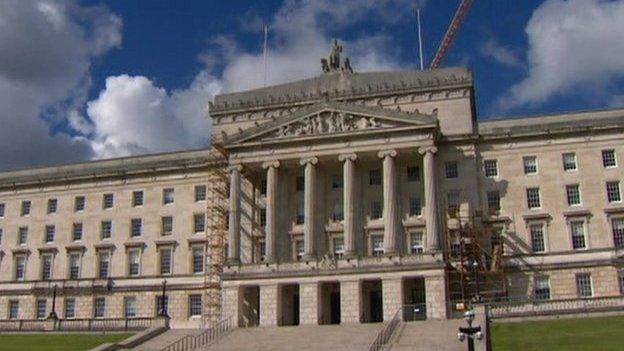Was Sir Jonathan Stephens appointed because of government concern over Stormont's stability?
- Published
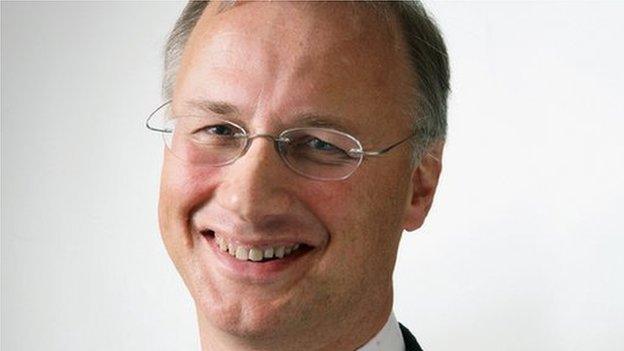
Sir Jonathan has 15 years experience working in Northern Ireland
There was little fanfare when Sir Jonathan Stephens was appointed permanent secretary at the Northern Ireland Office in June, but the move was viewed by some as a clear sign that the government was concerned about the stability of the Stormont assembly.
The 54-year-old father-of-two is well versed in the complexities and sensitivities of the political process in Northern Ireland.
An Oxford graduate, he began his civil service career at the Northern Ireland Office (NIO) in 1983, and said after his appointment during the summer that it "feels like coming home".
That was because Sir Jonathan has 15 years' experience working in Northern Ireland.
He was one of the key strategists for the British government during the negotiations that resulted in the Good Friday Agreement of 1998.
'Highly regarded'
"He was a key player, someone viewed as a heavy lifter when it came to the negotiations," says one well-placed source.
Sir Jonathan has seven years experience as a permanent secretary, the most senior grade in the civil service, and is highly regarded.
He is credited with the successful delivery of the London 2012 Olympic and Paralympic Games for the Department of Culture, Media and Sport, and has also worked in the Treasury and Cabinet Office.
So why was he brought back at the Northern Ireland Office?
A source familiar with the talks process that led to the Good Friday Agreement believes his appointment was a clear sign that the government was concerned about the stability of the institutions in Northern Ireland.
"He is someone very familiar with the contentious issues here and with the personalities involved," they said.
"It's no accident that he has been appointed at this time."
Sir Jonathan's civil service seniority is also a sign that the NIO believed more experience was needed at this time. He replaced Sir Julian King, who was a director general, a level below permanent secretary.
The change was highlighted by Secretary of State Theresa Villiers at the time of his appointment.
"I welcome this appointment at permanent secretary level, a change which reflects the importance the prime minister and I attach to the work the government is doing to support the Northern Ireland Executive and to help build a peaceful, stable and prosperous Northern Ireland," she said.
The NIO is also currently recruiting new staff, including two directors who will report to Sir Jonathan.
A source familiar with the workings of the NIO said this process, which he described as "capacity building", could also be in preparation for a possible increase in workload and responsibility.

Peter Robinson said the St Andrews Agreement was a 'short-term solution' and proposed that the NI parties should negotiate a new version
But building for what?
Describing the assembly as "not fit for purpose", First Minister Peter Robinson has proposed that political parties in Northern Ireland should negotiate a new St Andrew's Agreement.
Preparations
"I don't think the government will have been at all surprised by Peter Robinson's statement that the assembly is not fit for purpose," said one source.
"I think there was a realisation that perhaps the success of devolution here couldn't be taken for granted. Sir Jonathan's appointment and the fact that the NIO is building its capacity suggests it's preparing for a possible period of political instability.
"He is someone who can provide high level advice and guidance to the secretary of state. I would expect that the emphasis will be on trying to do what they can to help ensure that the devolved institution survives and to prevent any possible collapse of the assembly.
"Sir Jonathan was an important figure for the British government during the Good Friday Agreement talks, so he would be the ideal person to provide strategic advice and guidance during any new talks that might take place."
At the time of his appointment, the new head of the NIO himself hinted that the move might have been more significant than appreciated at the time.
"Much has changed in the 14 years since I left," he said.
"But continuing to help the people of Northern Ireland and their leaders make progress remains as vital as ever."
- Published9 September 2014

- Published29 August 2014
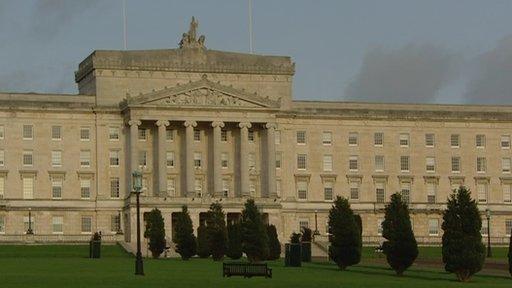
- Published28 August 2014
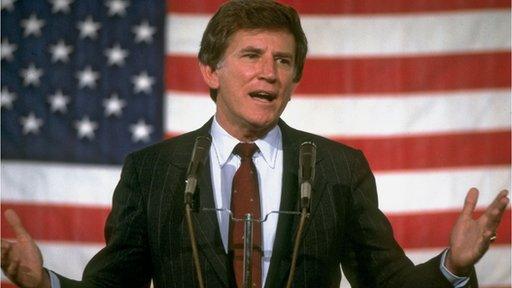
- Published21 August 2014
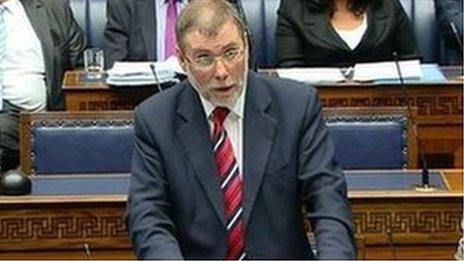
- Published1 August 2014
